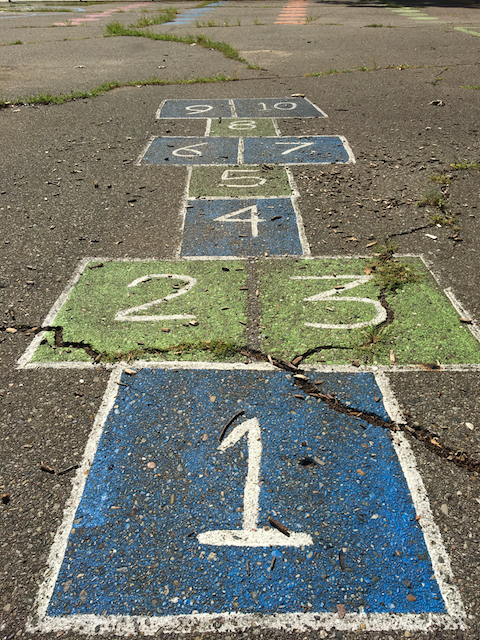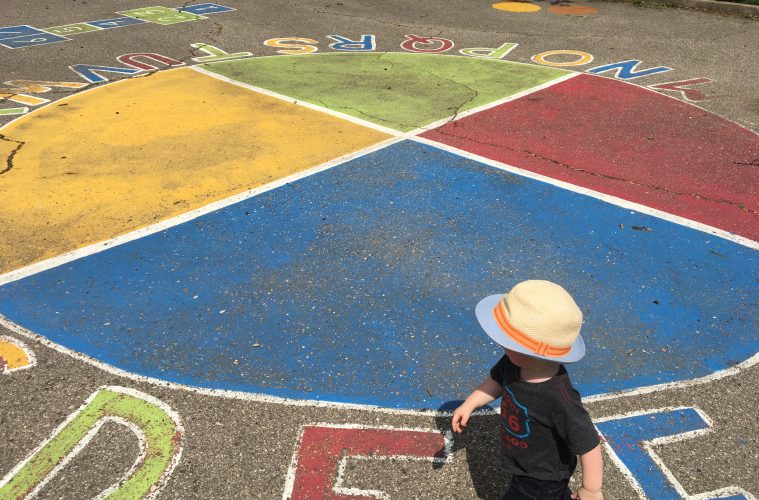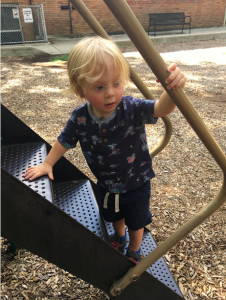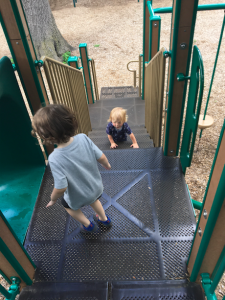During a normal August, parents would be preparing with delight for the upcoming school year. Children would be filled with a mix of existential dread and curiosity over what this year will bring as they begin their back-to-school shopping.
2020 however, has turned out to be no ordinary year. Most of us are wondering how many horsemen of the Apocalypse there are, how many have already arrived, and if we put out cookies and strong drink for the rest, will they leave us alone? Parents who have had their children home since April, and teachers, who have been facing unprecedented challenges, are wondering if the number of horsemen has increased.
While teachers, suddenly forced to teach classes over the Internet with very little prep time and no experience in this unexpected transition, did their best, parents were forced to play a greater role than usual once schools closed. Remember those silly Internet memes we chuckled over in April?
Back then, many of us were sure school would begin again as normal in the fall. Now we are not so sure. New protocols must be established, and new teachers must be hired in order to replace the increased number who retired, rather than face the coming uncertainty. Some parents aren’t sure they want their children facing the risk of Covid-19 if they do return to the physical classroom.
So what is a parent to do?

“Learning is a part of life, and education is a lifelong process.”
Some parents are hiring tutors – like me. Yes, full disclosure; I am a literacy tutor. I’ve been teaching students over Zoom. Adjustments have been made, but it works.
Another option is homeschooling.
Many parents have also been spending more time at home. Some are working from home. Others are still, unfortunately, out of work. Depending on how many children you have at home, and how much time you and they can tolerate each other, homeschooling may work for you.
My wife and I, like most parents, when our children were young, kicked them out of the house every morning to trudge down the street to school and told them not to come home until they had an education. They’re both self-sufficient adults so I assume they learned something. My wife and I did read to them every day beginning around birth, and we helped with homework. We fed and clothed them. In short, we did all (or at least most of) the things parents are expected to do.
Our friend, Patti, home schooled her children up until their last few years of high school. One of her children was homeschooled until the end of high school. So she and her husband obviously did much more than my wife and I did. Their children are also self-sufficient adults. I spoke to Patti in order to get the skinny on home schooling.
This is some of what she told me:
First of all, you are making a serious commitment. Homeschooling is a big undertaking and it will change your family’s life. That shouldn’t scare you.
Homeschooling is school and it should be treated as such. You should have a daily schedule, beginning and ending school at a regular time. Children need the structure and the routine of a regular school day whether it’s inside or outside the home. After school is after school. Teacher turns back into mom (or dad). Kids put on their play clothes and play.
Patti’s daily school schedule began with academics, math and language arts (including phonics, spelling and penmanship), in the morning. Afternoons were for science and social studies. Music and the arts are also important, so a piano teacher came to house once a week. Her children took lessons from early elementary school through high school. Friday afternoons were reserved for games, field trips, spelling bees and other fun activities.
The curriculum she relied on mostly was from Rod and Staff, a Christian home school publishing company that does not have a website. Materials from Abeka and Bob Jones, two other Christian publishers, were used for science. Unlike public schools, in which teachers and students are given taxpayer funded materials, homeschoolers must buy their own.
Another important aspect of homeschooling is reviewing the curriculum from year to year to insure that it is meeting your family’s needs. Things change. Children change. Something that worked in one grade or with one student may not work in another grade or with another student. Public school teachers are locked into their curriculum. Homeschoolers can be flexible and may make needed changes. This means you must be a “hands on” parent, monitoring your children’s progress by checking their work daily. That’s the only way to know if they are mastering what you are teaching. You should also give your children report cards, just like public school students receive. The grading scale is up to you.
You should make daily and weekly lesson plans to monitor your teaching and to be prepared for each days lessons. Sure, teaching looks easy, but there is a lot of preparation needed in order to maintain that illusion. Your children will learn better if you are organized and teaching lessons at an appropriate pace. Again, you can be as flexible as you need to be.
- Photos | AB
One of the arguments made against homeschooling is the alleged lack of socialization. That’s baloney. Patti’s children were involved in many after school community activities and had friends both in the neighborhood and among their homeschool group.
Yes, homeschool parents are not alone. Many band together to form home school groups that benefit both parents and children. There are also websites offering advice and support.
One way education has changed in general is the proliferation of educational websites. There is the non-profit Khan Academy along with many other free educational websites. There are also for-profit websites that require subscriptions. As a public school teacher (now retired) I’ve used some of them, and like every product, there are the good, the bad, and the in-between. There are also websites full of lesson plans and worksheets.
Now that the big textbook companies have created online components to supplement their texts, your children’s school has most likely become more dependent on educational websites. Standardized tests are now taken online, forcing school districts to invest heavily in technology and forcing public school children to increase their screen time. In addition to student laptops, classrooms are now also equipped with Smart Boards, which add still more screen time to your child’s day. But an over-reliance on technology will harm children in the long run. Homeschooling cannot be day after day spent in front of the computer, even if the students are focused on educational websites.
Your children still need a solid curriculum. Reading instruction should be phonics-based in the early grades. Basic skills like spelling, grammar, penmanship, composition, and computation are vitally important. A grounding in basic skills is the only way to build up to the more advanced “critical thinking” skills.
In addition to the websites, there are also many more choices in homeschool publishers. Some are religion-based and some are secular. My own favorite is put out by the Core Knowledge Foundation. Many years ago, when I was engaging in empty talk over trying to open a charter school, it was going to be a Core Knowledge school with either Saxon or Singapore for math. The non-profit Core Knowledge Foundation, founded by E. D. Hirsch, has developed a strong knowledge-based curriculum, because contrary to what you’ve been told, knowledge is important, and it’s especially important to children who are learning to read. Core Knowledge is now available for homeschool. Some of their material is free for you to download.
Whether or not you are considering homeschooling, as a concerned parent you might want to examine some of these downloads, read through the Core Knowledge curriculum, and compare it to what your local school district is teaching your children. Not that I’m trying to sow dissatisfaction with our public schools, or steer you into home schooling. That is every parent’s individual choice, but it’s always good to be informed. In fact, if you’re thinking about homeschooling, you will want to examine many curricula.
Homeschoolers need to understand their state’s homeschooling rules. You don’t want to get in trouble with the law. If your home school is not accredited, your children may have to take the G.E.D. in order to receive a valid high school graduation certificate, as Patti’s one child had to do.
One last issue to consider is that by homeschooling you demonstrate that learning is not separated from real life by being done in a special place. Learning is a part of life, and education is a lifelong process.
__________________________________________________
Who am I? I’m Harry Onickel. I’ve been a public school teacher for the past 28 years. I’ve been a reading/writing tutor for the past many years. Occasionally I also train teachers to teach the same phonetic language arts system I use when I tutor (and I used to use in my classroom) so that more students will learn to read, write, and spell. Sometimes I write about it on The Teacher That Exploded. You are invited to like my Reading Tutor Facebook page. I also have opinions (who doesn’t?) on other topics. I can be reached at [email protected].



